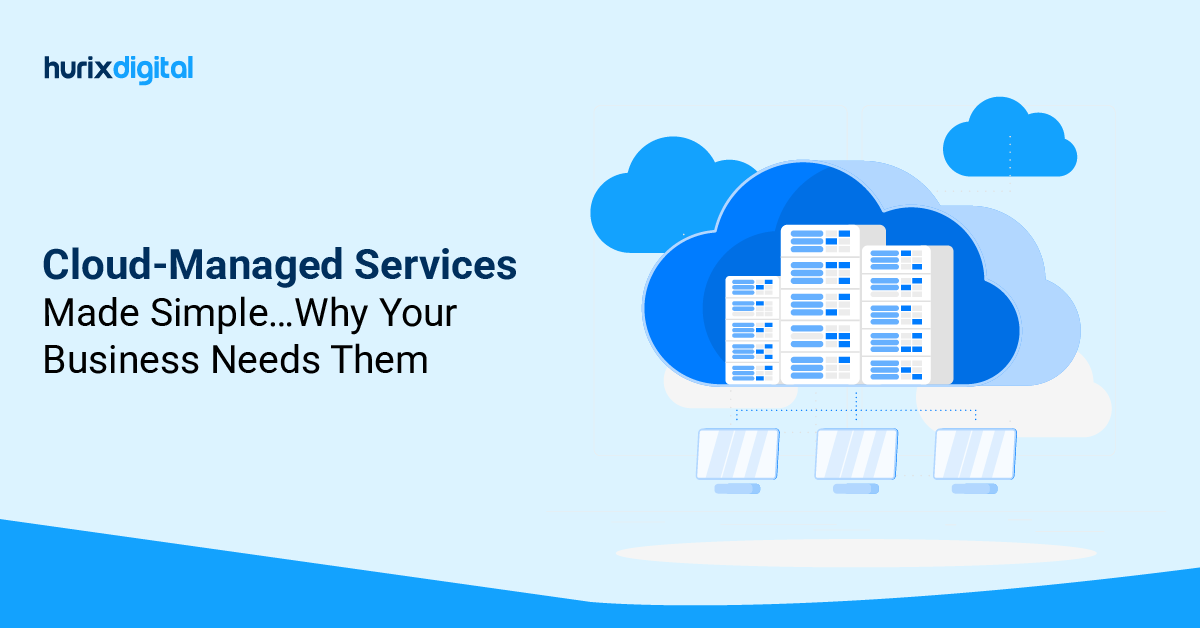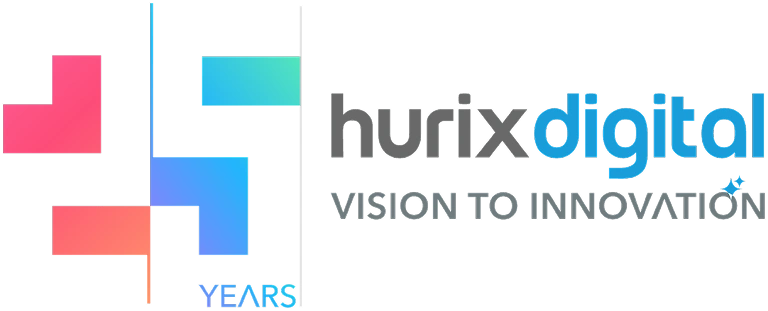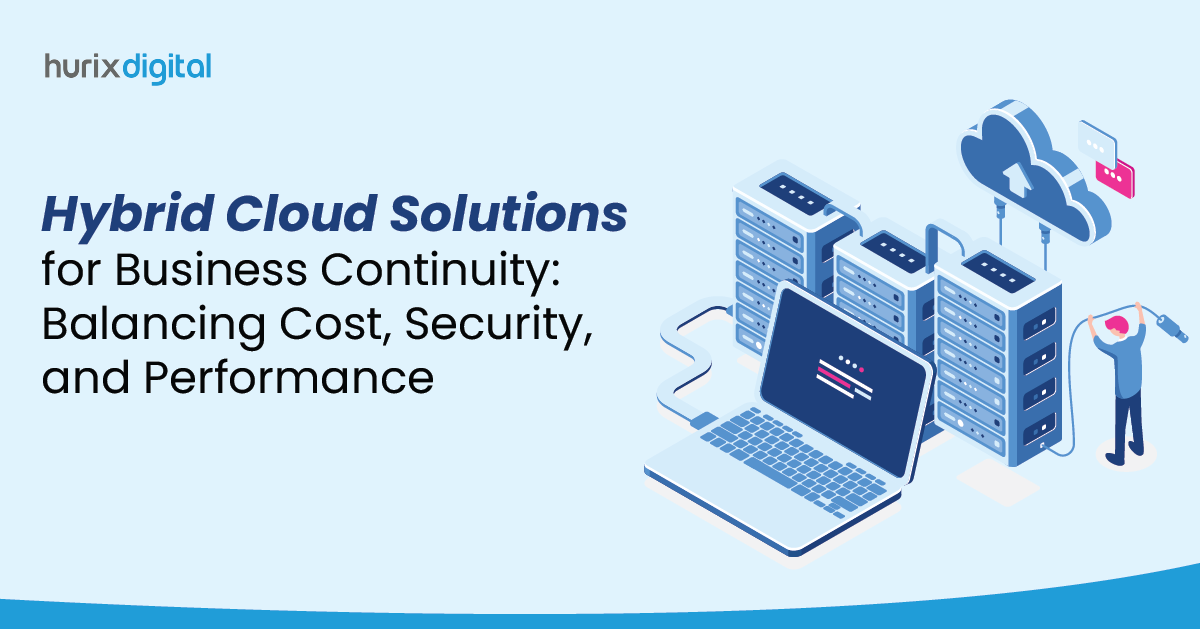
Cloud-Managed Services Made Simple…Why Your Business Needs Them!
Summarize with:
The proliferation of cloud technologies in recent years has transformed the way enterprises and IT managers approach managing IT costs, security, compliance, and infrastructure. The most significant change is the rapid rise of cloud infrastructure management software solutions, which aim to provide businesses with the necessary tools to monitor and optimize resources, data, and applications within a cloud environment.
Imagine transforming your business operations and slashing costs while staying ahead of the competition. The global cloud-managed services market was already a $121.10 billion industry in 2023. Moreover, it is expected to be worth more than $420.70 billion by 2033.
Businesses all over are recognizing this golden opportunity and saving a ton of money by switching to managed services for operations, security, infrastructure management, backup, and disaster recovery, and more. Here’s how you can also be a part of this revolution and cut infrastructure costs with cloud-managed services.
Table of Contents:
- Understanding Cloud-Managed Services
- Cloud Security Measures Provided by Cloud-Managed Services
- Five Key Success Factors About Cloud Managed Services Delivery
- Best Practices for Implementing Cloud Security
- 12 Future Trends of Cloud-Managed Services
- Edge Computing
- Increased Use of Complex and Multiple Environments
- Internet of Things (IoT) in Cloud Management
- AI in Cloud Management
- Enhanced Data Storage Capabilities
- Expansion of Containerization
- Serverless Computing
- Emphasis on Energy Efficiency
- Industry-Specific Cloud Services
- Service Mesh
- Blockchain Technology Integration
- Better Security Measures
- Final Thoughts
Understanding Cloud-Managed Services
Outside specialists offer cloud-managed services to oversee an organization’s cloud infrastructure. These services cover security, monitoring, maintenance, optimization, and support.
Ensuring a strong, safe, and optimally operating cloud infrastructure will free up companies to concentrate on their main areas of expertise.
The essential components of cloud-managed services include:
- Cloud Monitoring and Management: Cloud management and monitoring are the ongoing observation of cloud resources to ensure availability and the best possible performance. Aspects of monitoring include CPU, memory, and network performance.
- Security Management: Security management involves implementing and upholding security protocols to protect against dangers and weaknesses. This includes firewalls, intrusion detection, and regular security assessments.
- Cost Management and Optimization: Recognizing areas to cut costs and make the most of cloud spending. This includes using pricing and discount schemes and examining consumption trends.
- Disaster Recovery and Backup: This ensures that data is routinely backed up and can be swiftly restored in the case of a catastrophe. Part of this is developing and implementing recovery strategies.
- Compliance Management: This ensures that the cloud environment follows industry practices and the relevant legal requirements through audits and proper documentation.
- Performance Optimization: The optimal performance of the cloud environment is achieved through ongoing adjustment. This can include allocating more resources and putting performance improvements in place.
Cloud Security Measures Provided by Cloud-Managed Services
Cloud-managed services provide the following security measures to reinforce the safety of organizations:
1. Advanced Threat Detection and Prevention
Cloud-managed services typically offer advanced threat detection and prevention as part of their cloud security features. Using cutting-edge instruments and technology, such as machine learning and artificial intelligence (AI), these services detect and lessen possible risks before they cause damage.
Businesses that take this proactive tack can lower their risk of data breaches and other security vulnerabilities and keep one step ahead of criminal activities.
2. Continuous Monitoring and Incident Response
Ongoing cloud environment monitoring helps a company detect odd behavior or possible security breaches. Monitoring risks around the clock minimizes the potential impact on the company.
Providers of cloud-managed services are prepared to react quickly and efficiently to a security breach, minimizing harm and offering fast system restoration.
3. Vulnerability Management
Cloud-managed service providers conduct extensive evaluations to find weaknesses in the cloud infrastructure and ensure that all systems are running the most recent security patches. This proactive strategy deters hackers from taking advantage of known flaws to obtain illegal access to a company’s systems and data.
4. Data Encryption and Secure Access Controls
Any company using cloud services should give data protection high importance. Providers of cloud-managed services have implemented strong data encryption techniques to protect private data while it is in transit and at rest. They also impose stringent access restrictions to guarantee that only authorized staff may access important systems and data, preserving a secure cloud environment.
Five Key Success Factors About Cloud Managed Services Delivery
In today’s fast-paced digital landscape, businesses increasingly turn to cloud-managed services to enhance operational efficiency, drive innovation, and stay competitive. However, the success of cloud-managed service delivery hinges on several key factors that ensure seamless onboarding, proactive monitoring, preventive maintenance, strategic advisement, and technology lifecycle management.
Let’s check these success factors and understand their importance in delivering exceptional cloud-managed services:
1. Onboarding a Customer IT Infrastructure
Successful onboarding sets the stage for a fruitful partnership between the managed service provider (MSP) and the client. It involves meticulously understanding the client’s IT infrastructure, applications, workflows, and business objectives. By conducting a thorough assessment, the MSP can develop a tailored onboarding strategy that seamlessly meets the client’s expectations for their cloud infrastructure to minimize disruptions. Clear communication, effective project management, and a well-defined transition plan are crucial for a smooth onboarding process.
2. Setting up the Right Proactive Monitoring
Proactive monitoring forms the backbone of effective cloud management, enabling MSPs to anticipate and address potential issues before they escalate. Implementing robust monitoring tools and strategies allows MSPs to continuously monitor the performance, health, and security of the cloud environment. By proactively identifying and resolving issues, such as performance bottlenecks, security vulnerabilities, or capacity constraints, MSPs ensure optimal uptime, reliability, and performance for their clients’ applications and services.
3. Preventive Maintenance as per Technology Stacks
Preventive maintenance involves regular upkeep and optimization of the cloud infrastructure to prevent downtime and performance degradation. MSPs employ proactive maintenance routines tailored to the specific technology stacks used by their clients. This includes software updates, patch management, DB Indexing, log rotation, security enhancements, and optimization of resource utilization. By staying ahead of potential issues and keeping the infrastructure in peak condition, MSPs minimize disruptions and ensure a seamless user experience.
4. Advising Cost, Security, Reliability, and Performance Recommendations
Beyond technical management, MSPs play a crucial advisory role in guiding clients on cost optimization, security best practices, reliability improvements, and performance enhancements. By conducting scheduled assessments and audits, MSPs identify opportunities to optimize costs, strengthen security posture, enhance reliability, and improve performance. Through effective change management practices, MSPs collaborate with clients to implement recommended changes, balancing business objectives with technical requirements.
5. Keeping the Technical Component Up to Date by Technology Lifecycle Management
Technology evolves rapidly, and staying up-to-date with the latest advancements is crucial for maintaining a competitive edge. MSPs leverage technology lifecycle management practices to ensure that the technical components of the cloud environment remain current and relevant. This involves assessing the lifecycle status of software, hardware, and infrastructure components, planning for upgrades or migrations, and implementing changes promptly to ensure optimal performance. By embracing innovation and staying ahead of technology trends, MSPs help clients harness the full potential of the cloud.
The success of cloud-managed service delivery relies on a holistic approach that encompasses onboarding, proactive monitoring, preventive maintenance, strategic advisement, and technology lifecycle management. By prioritizing these key success factors, MSPs can deliver unparalleled value to their clients, enabling them to optimize their cloud environments and drive business growth.
Best Practices for Implementing Cloud Security
Businesses that want to make full use of cloud-managed services also need to follow cloud security best practices. These include:
1. Regular Security Audits and Assessments
Routine security audits and assessments must find potential vulnerabilities in the cloud infrastructure. These evaluations can be carried out, and cloud-managed services companies can produce comprehensive reports with suggestions for enhancing security measures.
2. Employee Training and Awareness
Human error is a leading cause of security breaches. Businesses that wish to impart to their employees the need for cybersecurity and the best practices for maintaining a safe cloud environment need to fund training and awareness initiatives regularly.
3. Multi-Factor Authentication (MFA)
By making users present many forms of identity before accessing important systems and data, multi-factor authentication (MFA) adds an additional level of protection. Suppliers of cloud-managed services can assist companies in putting MFA into place to improve their security position.
4. Regular Data Backups
Business continuity in the case of a security breach depends critically on routine data backups. Providers of cloud-managed services provide frequent backups of data and fast restoration of it in case of need.
5. Continuous Monitoring and Threat Intelligence
Maintaining efficient cloud computing security requires staying current on the newest threats and weaknesses. Suppliers of cloud-managed services provide threat intelligence and ongoing monitoring to keep companies aware of and safe from new risks.
12 Future Trends of Cloud-Managed Services
Cloud-managed services have become a very popular area of IT services that is growing rapidly.
Here are the top trends and predictions for 2025:
1. Edge Computing
The emergence of business intelligence and the need for real-time insights will push for the uptake of edge computing. Deploying edge computing will reduce latency and the time it takes to process data.
In other words, it will point to increased latency reduction, a better, personalized experience, and advancements in data processing. This development will improve data security and business operations, making it an essential part of any future cloud management solution.
2. Increased Use of Complex and Multiple Environments
As enterprises understand the need for using multiple cloud vendors, the trend toward using hybrid and multi-cloud models will increase. Multi-cloud will see massive adoption as organizations continue to integrate more public and private clouds to enhance their performance and security.
When considering this trend, it becomes possible to integrate various cloud services more fluidly. This approach reduces the risk of being captive to specific vendors and improves business resilience and operational efficiency.
3. Internet of Things (IoT) in Cloud Management
In this world of smarter devices, IoT devices are increasingly being integrated into businesses. With the increasing sales of IoT devices, a large amount of data will be produced.
This is where cloud-managed services will become fundamental for handling the large amounts of data streaming from these devices.
Advancements in cloud storage and computing will be critical to the future development of IoT technologies. This will facilitate high growth rates and the safe functioning of the system.
4. AI in Cloud Management
AI and machine learning will become the next big features in cloud-managed solutions. They are expected to automate jobs, add layers of security, and provide real-time predictions of possible fraud.
This integration will enable organizations to operate efficiently, thereby reducing expenses incurred. It will foster improved performance and increased solutions related to the cloud service.
5. Enhanced Data Storage Capabilities
Ever-rising data storage needs will compel organizations to opt for higher levels of cloud-managed services. These services will provide affordable storage capacity that will grow with the escalating use of virtual platforms.
Additionally, these services will enable businesses to efficiently manage and scale their data storage requirements without requiring extensive on-premises infrastructure investments.
6. Expansion of Containerization
Kubernetes and Docker will be the primary technologies that drive the growth of cloud-native applications. This trend will enable the faster and cheaper deployment and scaling of applications, thereby increasing efficiency in hybrid cloud computing management.
Additionally, containerization allows for easier management and portability of applications across different environments, reducing dependency on specific infrastructure and enhancing flexibility.
7. Serverless Computing
A growing trend will emerge from serverless computing, which goes against owning or maintaining physical servers. The concept of outsourcing applications to a host will come into prominence.
This approach makes it easier to deploy applications, cuts costs, and ensures smooth infrastructure. It’s no wonder it is widely used today among businesses.
8. Emphasis on Energy Efficiency
There will be a shift in focus towards energy-efficient data centers, and sustainability will be a strategic focus area for cloud providers. This transference aims to increase environmentally conscious practices while maintaining cloud service dependability and affordability.
9. Industry-Specific Cloud Services
Cloud solutions will become increasingly customized to cater to industry-specific services, such as those in the finance, healthcare, and manufacturing industries. These specialized services will target efficient and innovative solutions to sector-specific issues.
10. Service Mesh
Service Mesh technology will complement cloud services by enabling the isolation of different services. This will make the services efficient, hackproof, and scalable.
Though this technology is still in its infancy, it’s on the way to becoming one of the strongest trends in cloud security managed services.
11. Blockchain Technology Integration
Implementing blockchain technology will improve the scalability and security of cloud-managed services. Such integration shall guarantee the security of data storage and computation, hence clearing doubts and encouraging the use of cloud solutions.
Additionally, blockchain technology will ensure transparent and secure transactions within distributed cloud networks, further enhancing trust and data integrity.
12. Better Security Measures
Enterprises will integrate complex security features driven by artificial intelligence and adaptive machine learning functionalities into cloud-managed services. New measures like improved threat identification, access control, and data encryption techniques will help counter emerging cyber risks.
Final Thoughts
Companies need to implement proactive, all-encompassing security measures as cyberattacks become more advanced to safeguard their data and maintain a competitive advantage.
Cloud-managed services provide companies access to cutting-edge security solutions, knowledgeable management, and ongoing monitoring—a potent substitute for improving cybersecurity. By utilizing these services and following the best practices for cloud security, companies can build a secure cloud environment that protects their assets and builds client confidence.
Cloud-managed services will become an essential component of the digital ecosystem as organizations continue to increase their dependence on the cloud. Adopting the abovementioned trends will help companies flourish and sustain themselves in the volatile world of the future.
At Hurix Digital, our experienced cloud professionals utilize cutting-edge infrastructure to help businesses transform their cloud applications and migrate from legacy systems to cloud-based platforms.
We guarantee tight security in multi-cloud environments, flexibility, operational excellence, and increased speed. Our solutions are designed to ‘play well with others’ when it comes to integrating with any emerging technology, including AI and ML.
Connect with us today to learn more!
Summarize with:

Vice President & SBU Head –
Delivery at Hurix Technology, based in Mumbai. With extensive experience leading delivery and technology teams, he excels at scaling operations, optimizing workflows, and ensuring top-tier service quality. Ravi drives cross-functional collaboration to deliver robust digital learning solutions and client satisfaction
 A Space for Thoughtful
A Space for Thoughtful 




